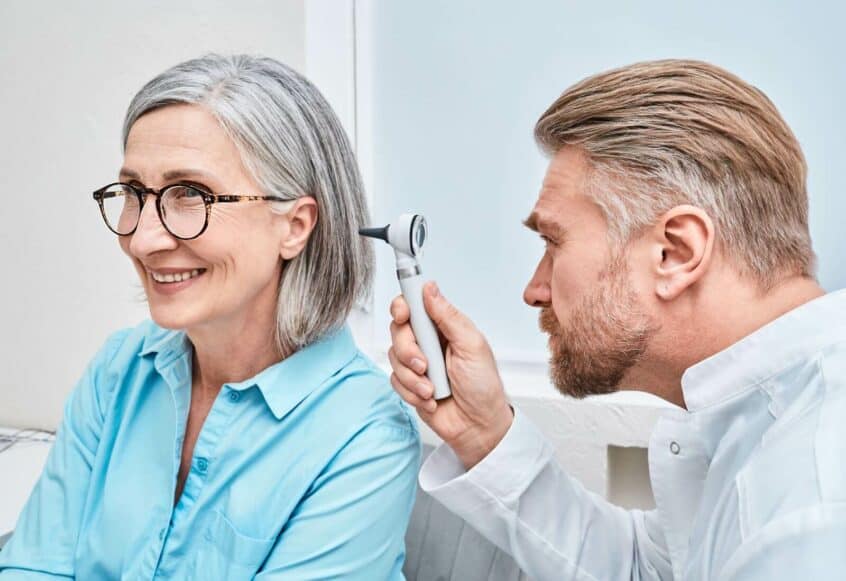How Often Should I Get a Hearing Test?

It is useful to know how often you should be getting a hearing test so that you can be proactive about your hearing health and wellness.
Recommended Guidelines for Hearing Tests
With hearing loss being one of the most common medical conditions people experiencing today, it is important to have your hearing evaluated. A 2020 report from The Lancet Commission recognized hearing loss as the number one modifiable contributor to cognitive decline when identified in mid-life. But how often should you be having your hearing tested? Well, the American-Speech-Language-Hearing Association (ASHA) has specific guidelines that they recommend for hearing tests that are helpful:
- Ages 18-40: for people who are in this age group and are not experiencing noticeable symptoms, ASHA recommends having your hearing tested every 3 years.
- 60 and above: people in this age group become more vulnerable to developing hearing loss. This risk increases with age:
- 1 in 3 adults, ages 65-74 have some degree of hearing loss.
- 1 in 2 adults, ages 75 and older have disabling hearing loss.
Age related hearing loss, also known as presbycusis, can be caused by a few factors. This includes changes to the ear that may happen over time, existing medical conditions that older adults also experience disproportionately and are linked to hearing loss, as well as the cumulative toll of loud noise exposure on the auditory system.
- People exposed to loud noise: loud noise is another common cause of hearing loss. Loud noise can damage the sensory cells in the inner ear which are crucial to how soundwaves are processed. Over 30 million people are exposed to hazardous noise levels regularly and 22 million people are exposed to excessive noise specifically in the workplace. If you are exposed to loud noise regularly, it is important to have your hearing health regularly assessed. This is especially important because noise induced hearing loss is completely preventable.
- People with hearing loss: if you have diagnosed hearing loss, it is also important to have your hearing evaluated regularly. Hearing needs can change over time as hearing loss exists on a spectrum. Getting your hearing tested regularly allows you to identify any changes you may experience over time as well as ensure that your hearing needs are still being met optimally.
Getting your hearing tested as recommended is an important way to protect your hearing health and wellness. Regular assessments allow you to track your hearing health and identify changes early on, supporting early intervention.
What to Expect From a Hearing Test
Knowing what you can expect from a hearing test can help alleviate any nervousness or hesitations you may feel about it. Hearing tests involve a painless and noninvasive process that is informative. At Mt Hood Hearing, we also perform cognitive function assessments to obtain a more complete “picture” of your condition. This evaluation process consists of:
- Interview: your hearing test appointment will begin like most medical appointments, with an interview process. You will be asked general health questions and go over what you’re experiencing. This includes discussing your symptoms, your hearing health history, and lifestyle factors that can be impacting your hearing health – activities you regularly engage in, work life, social engagement etc.
- Ear exam: your hearing healthcare provider will start the process by thoroughly inspecting your ears with an otoscope – a tool with a flashlight that is used to evaluate the ears. Your ear canal and eardrum will be assessed for anything that could contribute to hearing challenges – built up earwax, a perforated eardrum, bone growths etc. These factors can contribute to conductive hearing loss which is usually temporary and can be addressed through medical interventions that restore hearing.
- Tympanometry: We will then objectibly assess middle ear function with a “tympanometer” to evaluate the condition of the middle ear cavity, tympanic membrane (eardrum), and the conduction bones. The tympanometer has a probe that changes the pressure in the ear, generates an audible tone, and measures the eardrum’s response to the sound at different pressures.
- OAE: We then measure inner ear function (cochlea) with a device that assesses “Otoacoustic Emissions”. This is an objective non-invasive test that can confirm and detect early signs of damage to the inner ear.
- Cognitive Assessment: you will then take a 5-minute, self-administered computerized screening that will help us understand how hearing loss may be impacting your memory and how you process information.
- Hearing test: there are a few types of hearing tests that can be used to measure hearing capacity in both ears. This includes pure tone audiometry testing which involves wearing headphones while sounds play at different frequencies, and also measuring how you are understanding speech sounds in quiet and noisy environments. You’ll indicate what you can hear by raising your hand, pressing a button, and repeating words.
- Results: your results will be shared with you after your hearing test. If you have any degree of hearing loss, you will learn the specifics about any hearing loss – type of hearing loss, degree of impairment etc. Your hearing healthcare provider will also share the best course of treatment. You will also learn more about next steps and follow-up appointments if necessary.
Prioritize Your Hearing Health
You can prioritize your hearing health with one simple step, and that is scheduling an appointment for a complete hearing test. Contact us today to schedule your hearing consultation!
